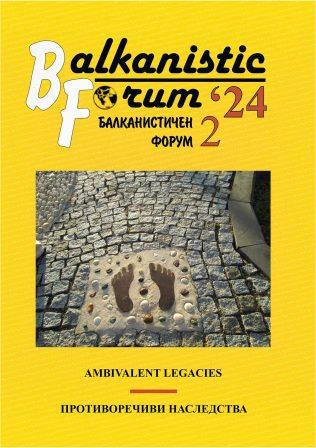Cultural Heritage of Europeism in Georgian Publicist and Artistic Texts
Cultural Heritage of Europeism in Georgian Publicist and Artistic Texts
Author(s): Marine Sioridze, Ketevan SvanidzeSubject(s): Language and Literature Studies, Studies of Literature, Translation Studies, Georgian literature
Published by: ЮГОЗАПАДЕН УНИВЕРСИТЕТ »НЕОФИТ РИЛСКИ«
Keywords: Europeanism; culture; heritage; translation; Georgian language; publicist; writing
Summary/Abstract: Due to historical ill-fate, Georgia found itself cut off from European civilization and culture for a long time. The catastrophe caused by the fall of Constantinople in the 15th century placed Georgia under an aggressive Islamic siege, posing a mortal threat to the existence of its nation-state and at the same time cutting the spiritual and cultural arteries that historically connected Georgia with Europe. The process of “re-Europeanization” (Siradze, 2008, p. 213) was first systematically revealed in the Georgian writing of the so-called “transitional century” (the turn of the 18th-19th centuries) and spread in all spheres of life throughout the 19th century. It should be emphasized that for our leaders, Europeanism was essentially not a matter of social-cultural orientation or vector, but the return of Georgian culture to its native bosom, native living and mental space, the restoration of the natural path of development. The 19th century saw great interest in Europe and its literature. The term "Europeanism" has been established since the 1850s. As for the content of the term itself, when defining the essence of Europeanism, we rely mainly on the point of view of Friedrich Nietzsche that Europe, as a term denoting culture, refers to those peoples who have a common past with the Greek and Roman civilizations, in the form of the Bible and Christianity. If we take into account Nietzsche’s definition and compare it with the history of Georgia, it is easy to see that we really have reason to call ourselves Europeans. First of all. The present work is aimed at studying and fully presenting the history of European-Georgian relations; the role and significance of translation, journalism and fiction in bringing Georgia closer to Europe; the turning of the viewpoint of Georgian society towards European ideals and the struggle for the establishment of the cultural traditions of Europeanism.
Journal: Балканистичен Форум
- Issue Year: 33/2024
- Issue No: 2
- Page Range: 268-281
- Page Count: 14
- Language: English
- Content File-PDF

